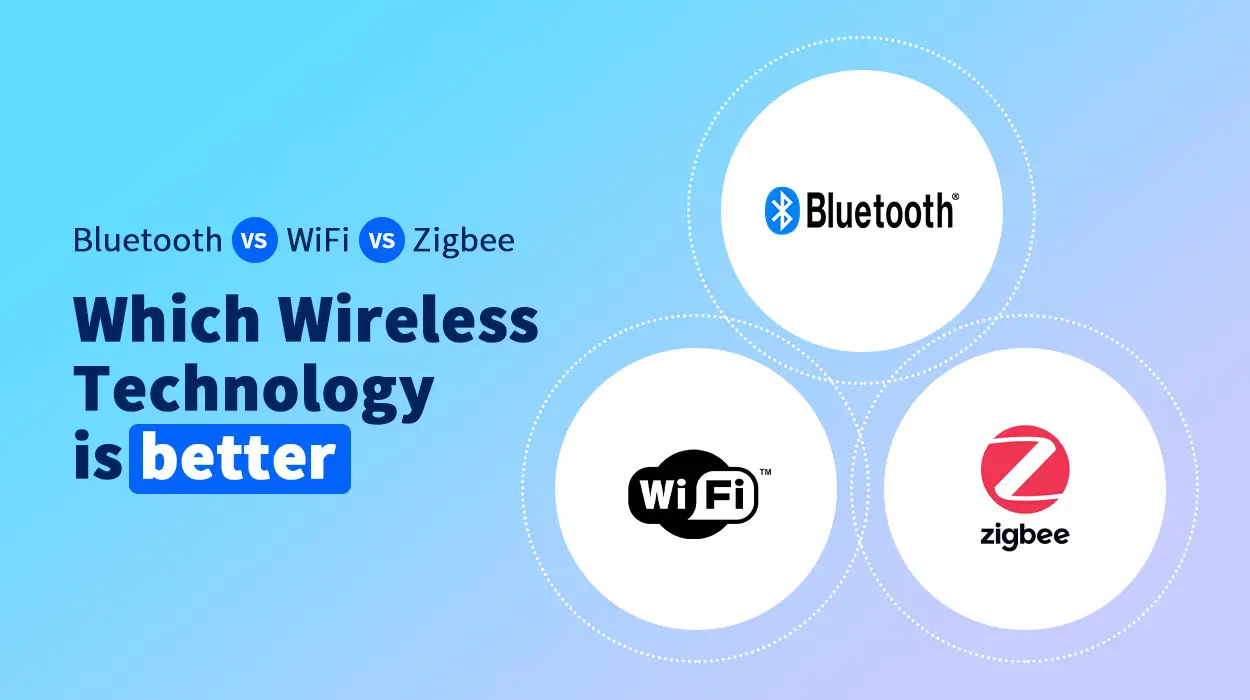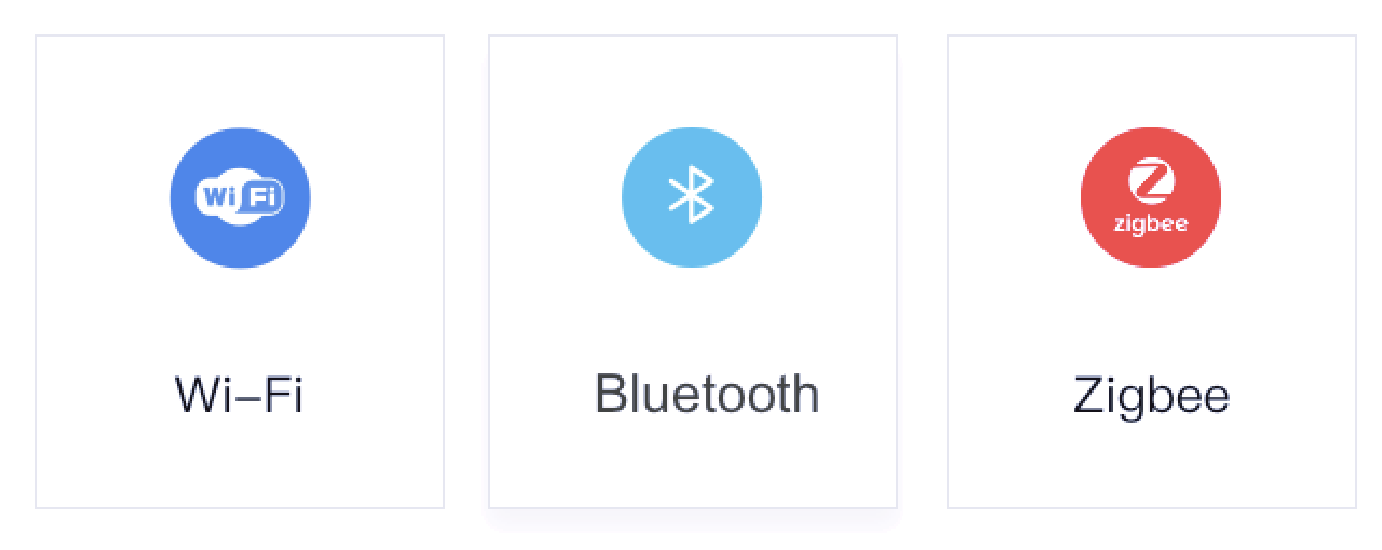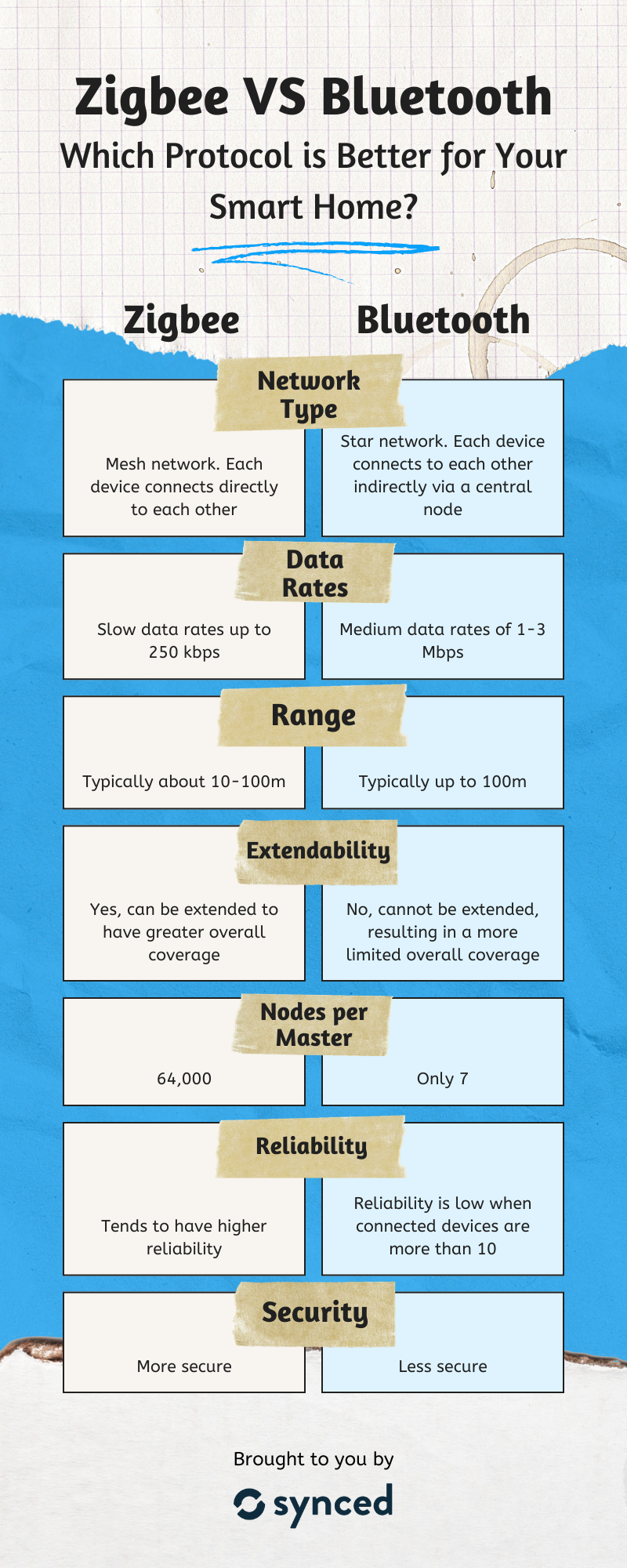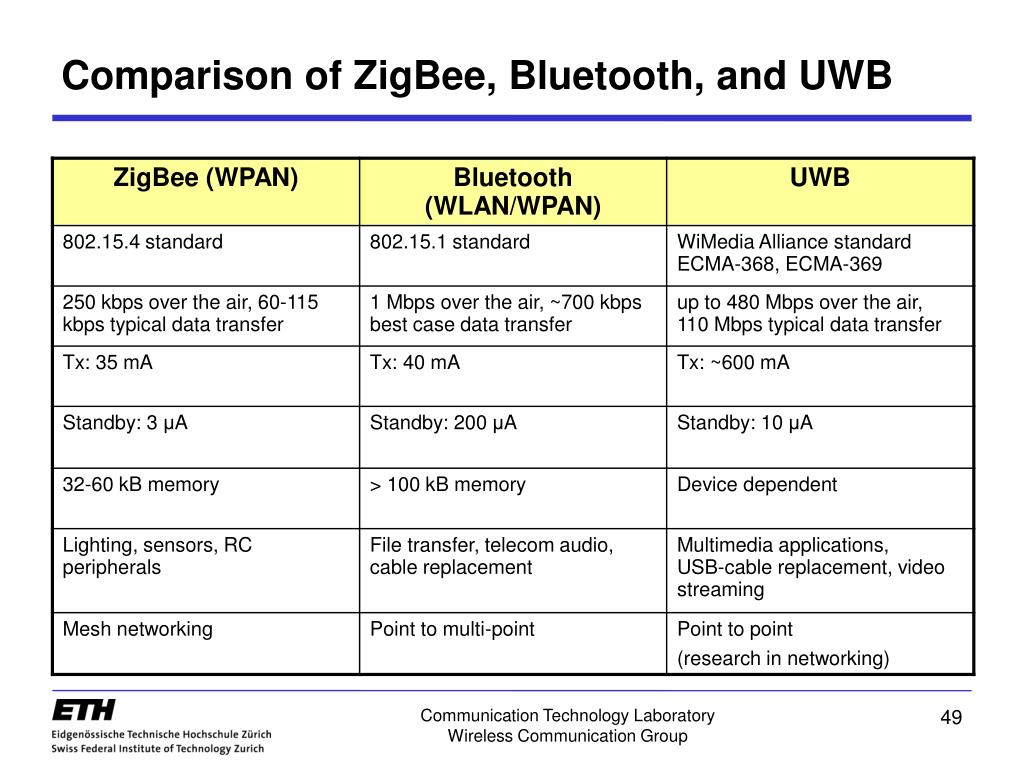Unique Info About Is Bluetooth Faster Than ZigBee

Bluetooth VS WiFi Zigbee Which Wireless Technology Is Better
Decoding Wireless Jargon
1. Understanding the Players
Alright, let's dive into the world of wireless tech, where acronyms reign supreme and understanding the differences can feel like deciphering ancient hieroglyphics. Today, we're tackling a common question: "Is Bluetooth faster than ZigBee?" It's a question that pops up when you're considering smart home devices, wearables, or any other connected gadget. The answer, however, isn't as simple as a straightforward "yes" or "no." It's more like a "depends" with a side of "it's complicated." Think of it like asking if a cheetah is better than a tortoise—they excel in different scenarios.
Bluetooth, that familiar friend we all know from connecting headphones to our phones, is designed for short-range, high-bandwidth communication. It's the Usain Bolt of wireless protocols, built for quick bursts of data. Think streaming music or transferring files. ZigBee, on the other hand, is more like a marathon runner. It sacrifices raw speed for endurance, focusing on low power consumption and the ability to connect a vast network of devices. Picture a swarm of tiny sensors chattering away, hardly sipping any battery juice.
So, let's think about real-world examples. Imagine you are creating a high-tech home where everything is connected. Now imagine you want to play music from your phone directly to a speaker. The best way to achieve this feat is with Bluetooth technology. On the other hand, if you are looking to connect every single sensor, light bulb, and smart plug to a central hub, then ZigBee would be the way to go.
Ultimately, the right choice between Bluetooth and ZigBee comes down to what you're trying to accomplish. Do you need blazing speed for streaming media? Or are you building a sprawling smart home network that prioritizes battery life and reliability? Keep these questions in mind as we explore the specifics!
+ZigBee+Protocol+Stack+250+kb.jpg)
Mobile Computing CSE 40814/60814 Spring Ppt Video Online Download
Speed Demands
2. Bluetooth's Need for Speed
When we talk about "Is Bluetooth faster than ZigBee?", the answer is a resounding yes, when it comes to sheer data transfer speed. Bluetooth, especially in its newer versions like Bluetooth 5.0 and beyond, boasts significantly higher data rates compared to ZigBee. We're talking about speeds that can handle streaming high-quality audio, transferring large files quickly, and even supporting some video applications. This makes it ideal for scenarios where you need to move a lot of data in a short amount of time.
Think about it: you're listening to your favorite playlist on your wireless earbuds. That's Bluetooth in action, seamlessly streaming audio data from your phone to your ears. Or, perhaps you're transferring a large photo album from your phone to your computer. Again, Bluetooth steps up to the plate, zipping those files across wirelessly. These are situations where ZigBee's slower data rates simply wouldn't cut it.
The reason for Bluetooth's speed advantage lies in its design. It prioritizes bandwidth over power efficiency and network size. It's designed to be a point-to-point or point-to-multipoint connection, meaning it's typically connecting a limited number of devices in close proximity. This allows it to dedicate more resources to transferring data quickly.
However, this focus on speed comes at a price. Bluetooth devices tend to consume more power than ZigBee devices. They also aren't as well-suited for creating large, complex networks. But when speed is your top priority, Bluetooth is the clear winner.

Endurance Race
3. ZigBee's Marathon Approach
So, we've established that Bluetooth is the speed demon. But what about ZigBee? Where does it shine? Well, ZigBee's strength lies in its ability to create large, low-power networks. It's designed for applications where devices need to communicate infrequently and consume minimal energy. Think of smart home sensors, industrial monitoring systems, and remote control devices.
Imagine a network of dozens of smart light bulbs scattered throughout your home. These bulbs need to be controlled remotely, but they don't need to transmit large amounts of data. ZigBee is perfect for this scenario. It allows the bulbs to communicate with a central hub, using very little power. This translates to longer battery life for battery-powered devices and reduced energy consumption overall.
ZigBee achieves this low power consumption through a variety of techniques. It uses a simpler communication protocol than Bluetooth, which reduces the overhead required for transmitting data. It also supports mesh networking, which allows devices to relay messages to each other, extending the range of the network and reducing the power required for each individual device to transmit directly to the hub.
While ZigBee's data rates are slower than Bluetooth's, they are perfectly adequate for many applications. It's not about sending huge files or streaming video; it's about reliably transmitting small amounts of data over a long period of time, using as little power as possible.

Picking the Right Wireless Horse for the Course
4. Matching Tech to Task
Choosing between Bluetooth and ZigBee isn't about declaring one the outright "winner." It's about understanding their respective strengths and weaknesses and selecting the technology that best fits your specific needs. Asking "Is Bluetooth faster than ZigBee?" is only the first step. You must then consider: What are you trying to accomplish? What are your priorities?
If you need to stream audio, transfer files quickly, or connect a limited number of devices in close proximity, Bluetooth is likely the better choice. It offers the speed and bandwidth required for these applications. However, be prepared for higher power consumption and a less robust network structure.
On the other hand, if you're building a large, low-power network of sensors, smart home devices, or remote control devices, ZigBee may be the more appropriate option. It prioritizes battery life, network scalability, and reliability over raw speed. This makes it ideal for applications where devices need to communicate infrequently and consume minimal energy.
Often, the best solution involves using both Bluetooth and ZigBee in conjunction. For example, you might use Bluetooth to connect your smartphone to a smart home hub, and then use ZigBee to connect the hub to a network of smart light bulbs and sensors. This allows you to leverage the strengths of both technologies to create a more comprehensive and efficient smart home system.

Comparison Of The Bluetooth, UWB, Zigbee, And WiFi Protocols
Real-World Scenarios
5. Examples to Illustrate the Differences
Let's look at a few real-world scenarios to further illustrate the differences between Bluetooth and ZigBee. Imagine you're designing a wireless headset. Bluetooth is the obvious choice for connecting the headset to your smartphone. It offers the necessary bandwidth for streaming high-quality audio, and it's a widely supported standard on smartphones and other mobile devices.
Now, consider a smart agriculture application. Farmers might deploy a network of sensors to monitor soil moisture, temperature, and other environmental conditions. These sensors need to operate on battery power for extended periods, and they need to communicate reliably over a large area. ZigBee would be a more suitable choice in this case, due to its low power consumption and mesh networking capabilities.
Another example is a retail environment. Stores might use Bluetooth beacons to send promotional offers to customers' smartphones as they walk through the aisles. However, they might also use ZigBee to connect a network of wireless sensors to monitor inventory levels and track customer traffic. Both technologies can play a valuable role in enhancing the customer experience and improving operational efficiency.
The key takeaway is that there's no one-size-fits-all answer. The best technology for a particular application depends on a variety of factors, including data rate requirements, power consumption constraints, network size, and cost considerations. Carefully evaluate your needs and priorities before making a decision.
